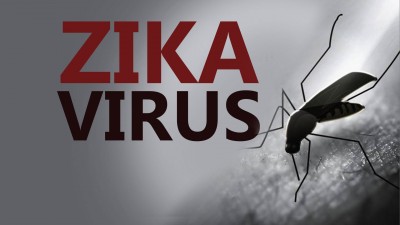 Dr. Josh Greenberg, School of Journalism & Communication
Dr. Josh Greenberg, School of Journalism & Communication
By Ariel Root
Communication is a crucial component of emergency response and crisis management. Warning imminently threatened populations, coordinating involved stakeholders, engaging community partnerships, and understanding public risk perceptions are all essential and effective risk communication strategies; they are also one of the more difficult challenges for any organization. Added to the complexities of different crisis event scenarios, the media can either help or hinder in times of emergency. Media organizations not only notify the public about risks, but they can also amplify fears and anxieties about health issues that may pose only a small threat. These controlled or amplified fears will influence how health officials have to understand, respond to, and manage different health risk scenarios.
 Josh Greenberg is the Director of the School of Journalism and Communication and an Associate Professor of Communication and Media Studies at Carleton University. His research examines media coverage of outbreaks and infectious disease risks; crisis and risk communication activities and strategies of key public health and industry actors; and the impacts of technology change on public health communication. His current projects focus on the ‘wicked’ communication problem posed by vaccine hesitancy, and the risk communication dilemmas associated with public health scares marked by high levels of scientific uncertainty, such as Zika virus. Greenberg’s interest in these issues were piqued long before he became an academic, when he briefly worked for a public relations agency specializing in healthcare and witnessed “the powerful role of PR in our current healthcare environment, and the ways that communication both constitutes and troubles our understanding of health risk.”
Josh Greenberg is the Director of the School of Journalism and Communication and an Associate Professor of Communication and Media Studies at Carleton University. His research examines media coverage of outbreaks and infectious disease risks; crisis and risk communication activities and strategies of key public health and industry actors; and the impacts of technology change on public health communication. His current projects focus on the ‘wicked’ communication problem posed by vaccine hesitancy, and the risk communication dilemmas associated with public health scares marked by high levels of scientific uncertainty, such as Zika virus. Greenberg’s interest in these issues were piqued long before he became an academic, when he briefly worked for a public relations agency specializing in healthcare and witnessed “the powerful role of PR in our current healthcare environment, and the ways that communication both constitutes and troubles our understanding of health risk.”
Greenberg is the lead investigator of the Communication, Risk and Public Health Research Group, an interdisciplinary group involving faculty and graduate students at Carleton. He has served as an expert panel member for the Council of Canadian Academies and the U.S. National Academy of Sciences, and is a member of the World Health Organization’s Emergency Risk Communications Guideline Development Group. Greenberg has also worked as a research consultant to both national and community-based public health organizations across Canada and has advised federal government departments and agencies on strategic communication and public engagement.
 Greenberg is an advisory board member of The Warning Project, a non-profit partnership of leading international practitioners, academics and consultants that work with governments and other organizations to communicate effectively during emergencies or other high risk events. In addition, he sits on the Advisory Board of Evidence for Democracy, which fosters research, education, and issue campaigns that engage and empower the science community, while cultivating public and political demand for evidence-based decision-making—precisely what Greenberg identifies as one of the more challenging aspects of his research. Because he currently works “on issues involving debates among experts in epidemiology, virology, bacteriology,” it is critical that he understands the science of a variety of possible health risks. “I have no formal training in these areas of core science, but I do have a strong understanding of how actors with different types of scientific expertise craft and mobilize rhetoric to advance their views in what is an increasingly crowded and competitive communications environment.”
Greenberg is an advisory board member of The Warning Project, a non-profit partnership of leading international practitioners, academics and consultants that work with governments and other organizations to communicate effectively during emergencies or other high risk events. In addition, he sits on the Advisory Board of Evidence for Democracy, which fosters research, education, and issue campaigns that engage and empower the science community, while cultivating public and political demand for evidence-based decision-making—precisely what Greenberg identifies as one of the more challenging aspects of his research. Because he currently works “on issues involving debates among experts in epidemiology, virology, bacteriology,” it is critical that he understands the science of a variety of possible health risks. “I have no formal training in these areas of core science, but I do have a strong understanding of how actors with different types of scientific expertise craft and mobilize rhetoric to advance their views in what is an increasingly crowded and competitive communications environment.”
Greenberg thoroughly enjoys applying his knowledge and skills to a variety of topics of public importance and derives considerable intellectual and professional enjoyment from interacting with academics that work across the social sciences, humanities, and natural sciences, and interfacing with communication professionals. Because of his wide and varied interests, his research is often an “opportunity to collaborate with experts completely outside of my field, who share similar interests and concerns but approach them in different ways.” One project involves collaboration with a medical anthropologist and geographer, and another with international public health professionals. “These types of collaborations are highly intellectually stimulating and rewarding,” he says.
Greenberg say he couldn’t imagine himself doing anything else. “Sometimes I feel like I have the best job in the world. I have freedom to develop new research, to work alongside other scholars I admire, and to participate in academic and policy-oriented conversations about issues I think are really interesting and important.”
For Dr. Greenberg’s contact information, go here.